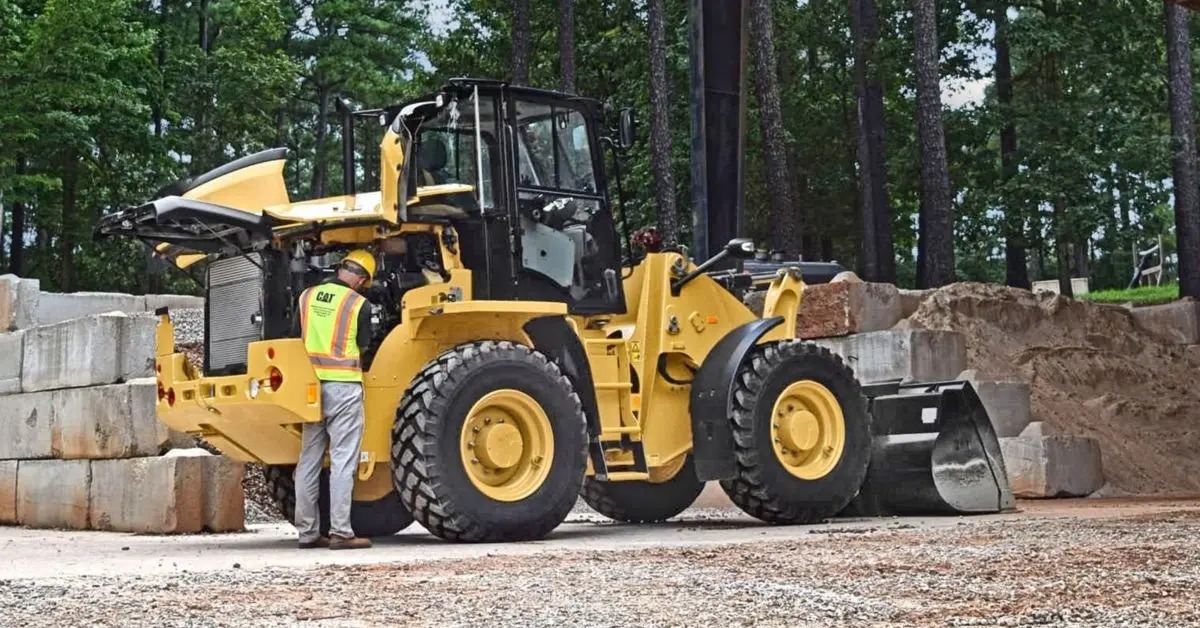Home>diy>Building & Construction>What Is The Highest-Paid Construction Trade


Building & Construction
What Is The Highest-Paid Construction Trade
Modified: January 6, 2024
Discover the highest-paid construction trade and explore the earning potential in the building construction industry. Learn more about career opportunities and salary ranges.
(Many of the links in this article redirect to a specific reviewed product. Your purchase of these products through affiliate links helps to generate commission for Storables.com, at no extra cost. Learn more)
Introduction
When it comes to the construction industry, there is a wide range of trades and professions that contribute to the building process. From carpenters to electricians, each trade plays a critical role in bringing architectural designs to life. One question often asked is, “What is the highest-paid construction trade?” In this article, we will explore the highest-paying construction trades and the factors that influence their salaries.
The construction industry offers a plethora of well-paying job opportunities, attracting individuals with various skill sets. These high-paying trades not only require technical expertise but also demand physical stamina and the ability to work in challenging conditions. Whether you are already working in the industry or considering a career in construction, understanding the highest-paid trades can help you make informed decisions about your professional growth.
It’s worth noting that the highest-paying construction trade can vary depending on factors such as location, demand, project scale, and experience. However, there are certain trades that consistently rank among the top in terms of earning potential. In the following sections, we will dive into these trades and provide insights into what makes them lucrative.
Key Takeaways:
- The construction industry offers a wide array of high-paying trades, including construction managers, architects, civil engineers, and elevator constructors, rewarding expertise and dedication.
- Experience, certification, and specialization significantly impact earning potential in construction trades, with factors such as location, project scale, and industry demand influencing salaries.
Read more: What Is The Highest-Paid Construction Job
Overview of Highest-Paid Construction Trades
While all construction trades are essential, some professions tend to offer higher salaries due to factors such as skill level, demand, and complexity of the work involved. Let’s take a closer look at some of the highest-paid construction trades:
- Construction Managers: Construction managers oversee and coordinate all aspects of a construction project, from initial planning to final execution. They are responsible for budgeting, scheduling, and ensuring projects are completed on time and within budget. Construction managers typically require a bachelor’s degree in construction management or a related field and several years of experience. Their expertise and leadership skills command high salaries, making them one of the highest-paid construction trades.
- Architects: Architects play a crucial role in designing buildings and structures, ensuring functionality, safety, and aesthetic appeal. They work closely with clients, engineers, and construction teams to create detailed plans and specifications. Architects usually have a bachelor’s or master’s degree in architecture and must be licensed to practice. Their extensive education and specialized skills contribute to their high earning potential.
- Civil Engineers: Civil engineers are involved in the design, construction, and maintenance of infrastructure projects such as bridges, roads, and airports. They analyze site conditions, develop project plans, and work closely with construction teams to ensure projects meet specifications. A bachelor’s degree in civil engineering is typically required for this profession. Due to the complex nature of their work and the importance of infrastructure, civil engineers often command high salaries.
- Electrical Engineers: Electrical engineers specialize in designing and overseeing the installation of electrical systems in buildings and infrastructure projects. They ensure that electrical systems meet safety standards and provide power supply efficiently. Electrical engineers typically hold a bachelor’s degree in electrical engineering and often pursue additional certifications. Their technical expertise and knowledge of electrical systems contribute to their high earning potential.
- Plumbers and Pipefitters: Plumbers and pipefitters install and repair plumbing and HVAC (heating, ventilation, and air conditioning) systems in buildings. They work with pipes, fittings, and fixtures to ensure proper functioning and maintenance of water, gas, and sewage systems. Plumbers and pipefitters usually complete an apprenticeship program and acquire relevant certifications. Due to the specialized skills required and the demand for their services, they often enjoy high salaries.
- Elevator Constructors: Elevator constructors are responsible for installing, maintaining, and repairing elevators, escalators, and similar transportation equipment. They ensure smooth operation and adherence to safety regulations. Elevator constructors typically complete a specialized training program and obtain relevant licenses. Their specialized skills and the high demand for elevator installations contribute to their high earning potential.
These are just a few examples of the highest-paid construction trades. It’s important to note that salaries can vary based on experience, location, industry trends, and the specific project or company hiring. Factors such as union membership and government contracts can also impact earning potential. It’s always recommended to research current salary trends and job opportunities before pursuing a specific construction trade.
Factors Affecting Pay in Construction Trades
The pay in construction trades is influenced by various factors that determine the earning potential for professionals in the industry. Understanding these factors can help individuals make informed decisions about their career paths and negotiate better compensation. Let’s delve into some key factors that affect pay in construction trades:
- Demand and Supply: The demand for certain construction trades can greatly impact wages. Trades that are in high demand and experiencing a shortage of skilled workers often command higher salaries. On the other hand, trades that have an oversupply of workers may see lower wages due to increased competition.
- Experience and Skill Level: Experience plays a pivotal role in determining pay. Construction professionals with several years of experience typically earn higher salaries compared to those just starting their careers. Employers value the expertise and knowledge gained through hands-on experience, and it often translates into higher compensation. Additionally, individuals with advanced skills or specialized certifications may also command higher pay.
- Education and Qualifications: Formal education and qualifications can have a significant impact on pay. Many construction trades require specific certifications, licenses, or degrees. Individuals who invest in their education and obtain relevant qualifications often have more opportunities for career advancement and higher pay.
- Location: The geographical location of a construction project can play a role in determining pay. Wages can vary based on factors such as the cost of living, local labor markets, and regional economic conditions. Construction trades in metropolitan areas or regions with high construction activities tend to offer higher salaries compared to rural or less-developed areas.
- Union Membership: Unionized construction trades often negotiate higher wages and benefits on behalf of their members. Union membership can provide collective bargaining power, ensuring fair compensation and improved working conditions. Being a part of a trade union can positively impact pay for construction professionals.
- Project Complexity and Size: The complexity and scale of a construction project can also affect pay. Trades that involve intricate designs or require specialized knowledge may command higher salaries. Similarly, working on larger-scale projects with higher budgets may offer better compensation due to the increased responsibilities and challenges involved.
It’s important to consider these factors when evaluating the earning potential in specific construction trades. While some factors are within an individual’s control, such as gaining experience and pursuing further education, others may be influenced by external factors such as market conditions. Conducting thorough research and staying informed about industry trends can help individuals make informed decisions about their career paths and set realistic salary expectations.
The Role of Experience in Salary
Experience plays a crucial role in determining salary levels in the construction industry. As with many other professions, construction trades reward individuals who have honed their skills over time and gained valuable hands-on experience. Let’s explore the various ways in which experience impacts salary in the construction industry:
- Increased Expertise: With experience comes increased expertise and knowledge in one’s chosen trade. Construction professionals who have spent years working in their field develop a deep understanding of best practices, industry standards, and techniques. They become adept at identifying and solving complex issues, improving efficiency, and ensuring high-quality work. Employers value this expertise and are willing to pay a premium for experienced professionals who can deliver results.
- Efficiency and Productivity: Experienced construction workers tend to be more efficient and productive compared to those who are just starting out. They have mastered their craft, developed streamlined workflows, and have a solid understanding of how to navigate the challenges often encountered in construction projects. This increased efficiency translates to saved time and resources, which is highly valued by employers. As a result, experienced professionals are often rewarded with higher salaries.
- Problem-Solving Abilities: Construction projects often present unexpected challenges and obstacles that require quick thinking and problem-solving skills. Experienced construction workers have encountered and successfully resolved a variety of construction-related problems throughout their careers. Their ability to think critically, make informed decisions, and find efficient solutions is indispensable to employers. Consequently, they may negotiate higher salaries to reflect their problem-solving abilities.
- Reduced Training Needs: Hiring and training new employees can be costly and time-consuming for construction companies. Experienced workers require less training and supervision since they already possess the necessary skills and knowledge to perform their tasks effectively. As a result, employers may be more inclined to offer higher salaries to experienced professionals to save on training expenses and mitigate risks associated with hiring and training inexperienced workers.
- Commanding Leadership Roles: With experience comes the opportunity for career advancement and leadership roles. Experienced construction workers often progress into supervisory or management positions, where they oversee and coordinate teams of workers. These leadership roles come with increased responsibilities and require a higher level of expertise. As a reward for their experience and leadership capabilities, professionals in such positions are often compensated with higher salaries.
It is important to note that experience alone may not guarantee higher salaries. Factors such as demand, industry trends, geographic location, and the specific company or project can also influence salary levels. However, in general, experience is a significant factor that contributes to higher pay in the construction industry. As professionals gain more experience in their trade, they enhance their value, skills, and ability to contribute to successful construction projects.
Individuals looking to increase their earning potential in the construction industry should seek opportunities to gain experience, pursue ongoing professional development, and continually enhance their skills. By doing so, they can position themselves for higher-paying roles and build a successful and rewarding career in the construction industry.
The highest-paid construction trade is typically elevator installers and repairers. Consider pursuing training and certification in this specialized field for potential higher earnings.
The Importance of Certification and Specialization
In the highly competitive field of construction trades, having the right certifications and specialized skills can significantly impact one’s earning potential and career advancement opportunities. Employers value professionals who have obtained relevant certifications and demonstrated expertise in specific areas. Let’s examine why certification and specialization are important in the construction industry:
- Enhanced Credibility and Trust: Certifications in construction trades provide tangible evidence of an individual’s knowledge and skills. They serve as a validation of expertise and demonstrate a commitment to professionalism and quality. Employers and clients often look for certified professionals as they instill confidence and trust in the work being performed.
- Meeting Industry Standards and Regulations: Certifications ensure that professionals are well-versed in industry standards and regulations. Construction projects require adherence to various safety codes and guidelines, and certified individuals possess the necessary knowledge to meet these requirements. Being up-to-date with industry regulations not only helps prevent accidents and injuries but also ensures compliance with legal obligations.
- Expanded Skill Set: Specialized certifications allow construction professionals to expand their skill sets beyond their core trade. For example, a carpenter who obtains a certification in sustainable construction practices can offer additional value by incorporating environmentally friendly methods into their work. Specializations can make individuals more versatile and enable them to take on a wider range of projects, making them more valuable to employers.
- Increased Marketability and Career Advancement: Certifications and specializations can greatly enhance a professional’s marketability and open doors to new career opportunities. Employers often prioritize candidates who possess specific certifications, especially for roles that require advanced technical knowledge or specialized skills. When seeking promotions or higher-level positions, having relevant certifications can give individuals a competitive edge over their peers.
- Higher Earning Potential: Certification and specialization can directly impact earning potential. Certified professionals often command higher salaries as their skills are in demand and recognized in the industry. Employers are willing to pay a premium for specialized knowledge and expertise that can contribute to the success of a construction project.
- Continual Professional Development: Obtaining certifications and pursuing specialization requires ongoing professional development. This commitment to learning and staying updated with industry trends demonstrates a dedication to professional growth. It also keeps professionals informed about the latest advancements, technologies, and best practices in their respective fields.
It is important to research and identify the relevant certifications and specializations within your chosen construction trade. Consider industry associations, trade unions, and educational institutions that offer recognized certification programs. Additionally, staying informed about emerging trends and developments in the construction industry can help individuals identify areas where specialized skills and certifications are in high demand.
By investing in certifications and specializing in specific areas of construction, professionals can enhance their credibility, expand their skill sets, and improve their marketability. These efforts can lead to higher earning potential, increased career opportunities, and a successful and fulfilling career in the construction industry.
Read more: What Are The Trades In Construction
Comparison of Earnings in Different Construction Trades
When considering a career in the construction industry, it’s important to understand the earning potential across different trades. While salaries can vary based on factors such as location, experience, and specialization, certain construction trades consistently offer higher earning potential. Let’s compare the earnings in some of the major construction trades:
- Construction Managers: Construction managers are responsible for overseeing and coordinating all aspects of construction projects. Their salaries can range from $70,000 to $150,000 or more per year, depending on factors such as project size, location, and experience.
- Architects: Architects design buildings and structures, and their salaries can vary widely. Entry-level architects can expect to earn around $50,000 to $60,000 per year, with the potential to earn over $100,000 with experience and specialization.
- Civil Engineers: Civil engineers design and oversee the construction of infrastructure projects. Their salaries can range from $60,000 to $110,000 or more, depending on factors such as experience, specialization, and location.
- Electrical Engineers: Electrical engineers specialize in designing and overseeing electrical systems. Their salaries can range from $60,000 to over $100,000 per year, depending on experience, skills, and industry demand.
- Plumbers and Pipefitters: Plumbers and pipefitters install and repair plumbing and HVAC systems. Their salaries can range from $40,000 to $80,000 or more per year, depending on experience, specialization, and location.
- Elevator Constructors: Elevator constructors specialize in installing and maintaining elevators and escalators. Their salaries can range from $50,000 to over $100,000 per year, depending on experience, certifications, and geographic location.
It’s important to note that these salary ranges are rough estimates and can vary depending on numerous factors. These include market demand, project scale, geographical location, level of experience, and additional certifications or specializations. It’s also worth mentioning that wages can be higher in metropolitan areas with a high cost of living and increased construction activity compared to rural areas.
Furthermore, there are other construction trades that can also offer competitive salaries, such as structural engineers, HVAC technicians, surveyors, and concrete finishers. The earning potential in these trades may vary based on specific market demands and regional factors.
Ultimately, the earning potential in construction trades is influenced by various factors, and it’s crucial to consider these factors when evaluating potential career paths. It’s advisable to research the current industry trends, salary ranges in your chosen trade, and opportunities for advancement or specialization to make an informed decision about your career goals.
Benefits and Perks in High-Paying Construction Trades
Aside from competitive salaries, high-paying construction trades often come with a range of benefits and perks that enhance the overall compensation package. These additional incentives recognize the value and dedication of professionals in the industry. Let’s explore some of the common benefits and perks associated with high-paying construction trades:
- Health Insurance: Many companies in the construction industry provide comprehensive health insurance coverage for their employees and their families. This includes medical, dental, and vision coverage, ensuring that professionals can access the healthcare services they need.
- Retirement Plans: High-paying construction trades often offer retirement plans such as 401(k) programs. This allows employees to contribute a portion of their earnings towards their retirement savings, sometimes with employer matching contributions. Having a retirement plan in place helps ensure financial security for the future.
- Paid Time Off: Construction professionals often receive paid time off, including vacation days, holidays, and sick leave. This allows individuals to take time off work for personal reasons, relaxation, or to recover from illness without sacrificing pay.
- Training and Professional Development: Many employers invest in the professional development of their employees, providing opportunities for training, workshops, and certifications. These programs not only enhance employee skills and knowledge but also increase their marketability and earning potential.
- Bonus Programs: In high-paying construction trades, companies may offer bonus programs based on individual or team performance. These bonuses can be tied to factors such as project completion, meeting specific targets, or exceeding client expectations. Performance-based bonuses motivate and reward employees for their hard work and dedication.
- Career Growth Opportunities: High-paying trades often provide opportunities for career growth and advancement. Construction companies value employees who show potential and dedication, offering opportunities for promotion into management or leadership roles. This allows individuals to further increase their earning potential and take on more responsibilities.
- Job Stability: The construction industry tends to offer job stability, especially in high-demand trades. With ongoing infrastructural development and renovation projects, skilled professionals are in constant demand. Job stability provides peace of mind and financial security for construction workers.
- Work-Life Balance: Although construction trades can be demanding, companies recognize the importance of work-life balance. Many employers strive to provide reasonable working hours, weekends off, and flexible scheduling options. This allows individuals to maintain a healthy work-life balance and spend time with their families and pursue personal interests.
- Employee Assistance Programs: Some construction companies offer employee assistance programs (EAPs) that provide resources and support for employees’ personal and mental well-being. EAPs may include services like counseling, mental health support, and access to wellness programs.
It’s important to note that the availability of these benefits and perks may vary from company to company and depend on factors such as company size, corporate culture, and industry standards. It’s always advisable to research and consider the specific benefits and perks offered by potential employers when evaluating job opportunities in the construction industry.
Ultimately, the combination of a competitive salary and comprehensive benefits and perks make high-paying construction trades attractive to skilled professionals. These incentives not only recognize the value of their work but also contribute to overall job satisfaction and well-being.
Conclusion
The construction industry offers a wide array of job opportunities, each with its own earning potential and unique set of benefits. From construction managers to architects, civil engineers to elevator constructors, there are high-paying trades that reward professionals for their expertise and dedication. Understanding the factors that impact pay in the construction industry is crucial for individuals looking to build a successful career in this field.
Experience plays a significant role in determining salary levels, as professionals with years of hands-on experience bring valuable expertise, efficiency, and problem-solving abilities to construction projects. Certification and specialization also greatly impact earning potential, as they enhance credibility, meeting industry standards, and expand skill sets.
When comparing earnings across different construction trades, it’s important to consider factors such as location, experience, and specialization. Salaries can vary widely, with construction managers, architects, and civil engineers typically earning higher incomes. Perks and benefits further enhance the overall compensation package, offering health insurance, retirement plans, paid time off, training opportunities, and career growth prospects.
In conclusion, the highest-paid construction trades provide excellent earning potential and numerous benefits for skilled professionals. By gaining experience, obtaining relevant certifications, and specializing in a particular area, individuals can increase their marketability, earning potential, and job satisfaction in the construction industry.
Whether you are already working in the field or considering a career in construction, it’s important to evaluate your personal interests, skills, and long-term goals to choose the right construction trade to pursue. Continuous learning, adaptability, and staying informed about industry trends are key to ensuring long-term success and maximizing earning potential in the dynamic and rewarding world of construction.
Frequently Asked Questions about What Is The Highest-Paid Construction Trade
Was this page helpful?
At Storables.com, we guarantee accurate and reliable information. Our content, validated by Expert Board Contributors, is crafted following stringent Editorial Policies. We're committed to providing you with well-researched, expert-backed insights for all your informational needs.















0 thoughts on “What Is The Highest-Paid Construction Trade”